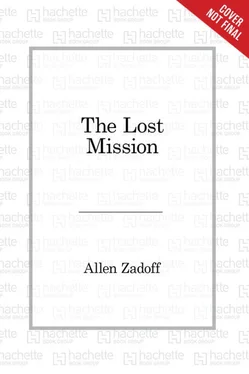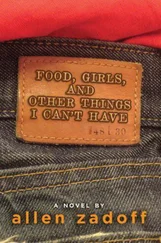There are perhaps thirty feet between this rooftop and the next nearest building, a smaller tower across the street.
Thirty feet away and a seventy foot drop. An impossible jump.
But as the federal building tilts, the space between the buildings decreases.
If I can time it right, it will be like jumping from one falling domino to the next one that has not yet fallen.
If I can time it.
Metal screams and windows explode beneath me. I hear bolts snapping and people shouting from the ground below.
Terror beats in my chest. I imagine jumping into space and falling, plummeting to the ground like Miranda.
Twenty-five feet between rooftops now.
That’s what my eye is telling me, but I might be wrong. Under this amount of duress, judgment can falter. I’m trained to work under pressure, to make significant and life-changing decisions under the most extraordinary circumstances.
Fifteen feet might be an acceptable risk. But twenty-five feet?
I’ve got seconds left to decide.
I’m too afraid to move. I’m frozen in place with the calculations racing through my mind, the distance, the possibility of making the jump, the likelihood of making a mistake.
The building tilts farther, knocking me to the rooftop. I manage to get back to my feet.
If I stay here I’m going to die. If I jump, at least I’ll have a chance.
Certain death or uncertain life.
Suddenly distance doesn’t matter.
I propel myself forward, running for the edge. I wait until the last possible moment, and then I jump into space—
I’m more than halfway across when I realize I’m not going to make it.
I’m descending faster than I’m moving forward, and even though I elongate my body and reach with my arms, there’s no way I will get to the other side.
I flash back to a week ago, the camp in Vermont, a beautiful summer day, a dark-green lake. I was leaping from a cliff, trusting fate as I dove into the water.
It’s easy to trust fate when you think it’s on your side.
But sometimes fate turns against you.
The way it did me, the day I met Mike.
The way it does to the people I meet on my missions, the people who breathe their last breaths in my arms.
The way it’s turning against me now.
Because now I am falling.
There is open air beneath my feet. I take a final breath, filling my lungs with oxygen, preparing myself for the terrifying drop to the pavement below.
Fate will have its way with me now in the form of a last fall.
My training doesn’t matter anymore. I’m falling, and there’s nothing I can do about it.
That’s when I see it.
A rope.
It appears in front of me seemingly out of nowhere, bright-orange knots in intervals down its length.
For a moment, I think I’m imagining it. A visual hallucination from a desperate boy who is about to die.
Illusion or not, I reach for it.
My fingers wrap around hard nylon cord. Real cord.
I grasp it and my hands slip. It takes every bit of strength I have to hang on hard enough to stop my fall.
But I am strong. I don’t let go.
My hands burn down the length of the rope until I come to a stop near the very end. Suddenly I go from falling to rising into the air, the rope swinging from side to side as I’m buffeted by strong winds from above.
I look up, following the length of nylon upward, craning my neck until I find its source. The rope has been dropped from a helicopter.
I stare up at its belly as it rises slowly, the rotors catching air and pulling me away.
When I look below, I see the Federal Building collapsing onto a downtown street, a rolling dust cloud enveloping several city blocks. It is an image that is terrible and familiar at the same time.
With the building gone, the darkness in the city is complete. Boston is a black void beneath me. Above me is open air.
I climb.
I reach the skid of the helicopter, then pull myself up into the cargo hold. I recognize this helicopter. I flew one just like it in Vermont less than a week ago.
I flop onto the floor and pull the door closed behind me.
The pilot looks back at me, a concerned expression on his face.
It’s Father.
“WELCOME BACK,” HE SAYS.
“Where did you come from?”
“What does it matter? I’m here. Dropping you a lifeline.”
Lifeline.
It’s the same term Francisco used.
“Why now?” I say.
“Because you needed one now, wouldn’t you say?”
“And before? When I was cut off in Camp Liberty, trying to communicate with you?”
“That’s a longer conversation,” he says.
I watch Father, his face impassive as he scans my body, assessing my health.
“You weren’t injured,” he says.
More a statement than a question.
“I wasn’t injured,” I say.
“Then let’s get you out of here.”
I USE A FIELD DRESSING TO WRAP MY BLEEDING HANDS.
Then I climb into the passenger seat next to Father.
I look at the sky through the windshield. A moment ago it looked like death. Now it looks like the opposite.
“I haven’t been able to get ahold of you for four days,” I say.
Father won’t look at me. His focus is straight ahead as he monitors the helicopter’s controls.
“I tried to contact you,” I say angrily. “We had contingencies in place, a safe house, a plan—”
“I know,” Father says.
“But you disappeared! Why?”
“I was under orders,” he says. “I had no choice but to cut you off.”
I take a long breath, forcing back the rage that’s threatening to spill out of me.
“Tell me why,” I say.
“First Francisco dropped off the radar, then you disappeared into the camp. The Program was hemorrhaging. That’s what it seemed like from our perspective. We had to stop the bleeding, or we risked losing everything. Can you understand that?”
Mike told the truth. I went into camp, and The Program interpreted that as a betrayal.
“What did you think happened to me?” I ask.
“We thought you’d been recruited, that you had turned.”
“You think my loyalty is that fragile?”
“As we discussed before the mission, there were questions about you.”
“But you tested me. You said I was fit for duty.”
“And then you disobeyed orders and went into Liberty.”
“So you wrote me off.”
“You can understand why we had doubts after what we’ve seen recently. From you and the other soldier.”
Two operatives breach protocol, one after the other. From The Program’s perspective it couldn’t be a coincidence—they’d have to assume it was systemic. At that point everyone’s allegiance is suspect until proven otherwise.
On one hand, their choice to cut me off makes sense.
On the other hand, they left me in the field to fend for myself, assuming betrayal instead of coming to get me.
I say, “If you still had doubts, you should have contacted me. We could have talked about it.”
“If we had tried to contact you in the camp, Moore would have killed you. We had to assume he’d discovered our soldier and was expecting a second mission insertion. Any suspicious behavior, and he would have acted against you. So we could not contact you.”
“If you were so worried about Moore killing me, why did you decide to do it yourself?”
“What are you talking about?”
“The kill order,” I say.
“We never put out a kill order.”
I watch Father’s face to determine if he’s lying. I don’t see any evidence of it, but he’s expert at hiding such things.
I say, “You sent a freelance team to the safe house. What would you call it?”
Читать дальше












